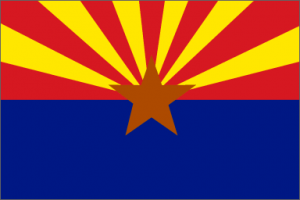The divided court upheld a Maricopa County Superior Court ruling that found a 2011 pension-reform law unconstitutional.
A state Supreme Court ruling will require refunds to elected officials and public-safety officers who since 2011 were required to pay more for their pensions, with local governments likely to cover the projected $220 million cost to an already fragile public-pension trust fund.
The divided court upheld a Maricopa County Superior Court ruling that found a 2011 pension-reform law was unconstitutional. Specifically, it overturned provisions in the law that increased employee contributions to their own retirement and curtailed certain benefit increases. The law was intended to improve the financial health of the Public Safety Personnel Retirement System trust fund.
The decision means hundreds of PSPRS members whose employee contributions were increased will receive refunds, while some retirees will receive retroactive benefit increases. Justices also ordered attorneys’ fees paid to the plaintiffs’ counsel, and interest on the repayments.
“While this ruling is unfortunate in terms of the health of the system, we respect the constitutional protections granted by this opinion,” PSPRS Administrator Jared Smout said in a statement.
Precise details of how the refunds and benefits will be implemented are being worked out, PSPRS spokesman Christian Palmer said.
Lawmakers five years ago passed a series of reforms to shore up PSPRS, which has under-performed while providing generous retirement benefits to politicians, police officers and firefighters.
The $8.68 billion retirement system only has roughly half the money it needs to fully fund retirement benefits for current retirees and working members now paying into the system.
Incoming state Senate President Steve Yarbrough, who wrote the 2011 pension-reform law, said Monday that the state has no additional funds to bail out the pension system.
“This clearly is going to ultimately fall on the fund, which will translate into impacting (public) employers,” Yarbrough said. “The refunds will be paid from the fund, which will make it more underfunded and have more liabilities. … We are going backwards, and that is a problem.”
The court ruling is likely to force local and state governments, which already pay the majority of retirement contributions, to increase their payments to the retirement system for their employees, Yarbrough said.
Despite the 2011 reform law, some cities and towns held back on hiring additional police officers and firefighters in the past few years because of the enormous cost of their per-employee contributions to the retirement system.
The high court’s ruling came after two Arizona Court of Appeals judges — Philip Hall and Jon Thompson — sued, contending the 2011 reform law was unconstitutionalbecause it violated the pension and judicial salary clauses of the Arizona Constitution and the contract clauses of the state and United States constitutions.
While the case focused on the elected officials’ retirement plan, the ruling also is expected to affect those in retirement plans for public-safety officers and correctional officers. Elected officials, public-safety officers and correctional officers have separate plans, but all are under the umbrella of the PSPRS.
The ruling has no effect on the much larger Arizona State Retirement System, which covers state and local government workers and teachers.
The high court’s ruling is the second major blow to the 2011 pension-reform law. A unanimous court in February 2014 restored cost-of-living raises to retired judges and elected officials that the Legislature had suspended. That case cost the trust approximately $386.6 million in payouts.
The recent ruling rolls back the pension contributions of roughly 200 judges to pre-2011 levels, or 7 percent of their salaries. Today, they pay 13 percent. Employers, on average, paid in an amount equal to 23.5 percent of each employee’s salary as of June 30, 2015, the most recent figures available.
Firefighters and police officers will have their contributions rolled back to 7.65 percent of their salaries, down from 11.65 percent. Employers, on average, paid in 32.54 percent as June 30, 2015. Some employers, however, paid more than 50 percent, with Bisbee paying nearly 88 percent.
The case was heard by a five-member special panel instead of the full Supreme Court. Court members recused themselves because they were affected by the outcome and had potential conflicts of interest.
PSPRS Administrator Smout said while the ruling is a setback, the system is poised for recovery due to another pension reform measure voters approved earlier this year. That plan is projected to save $475 million in long-term costs.


